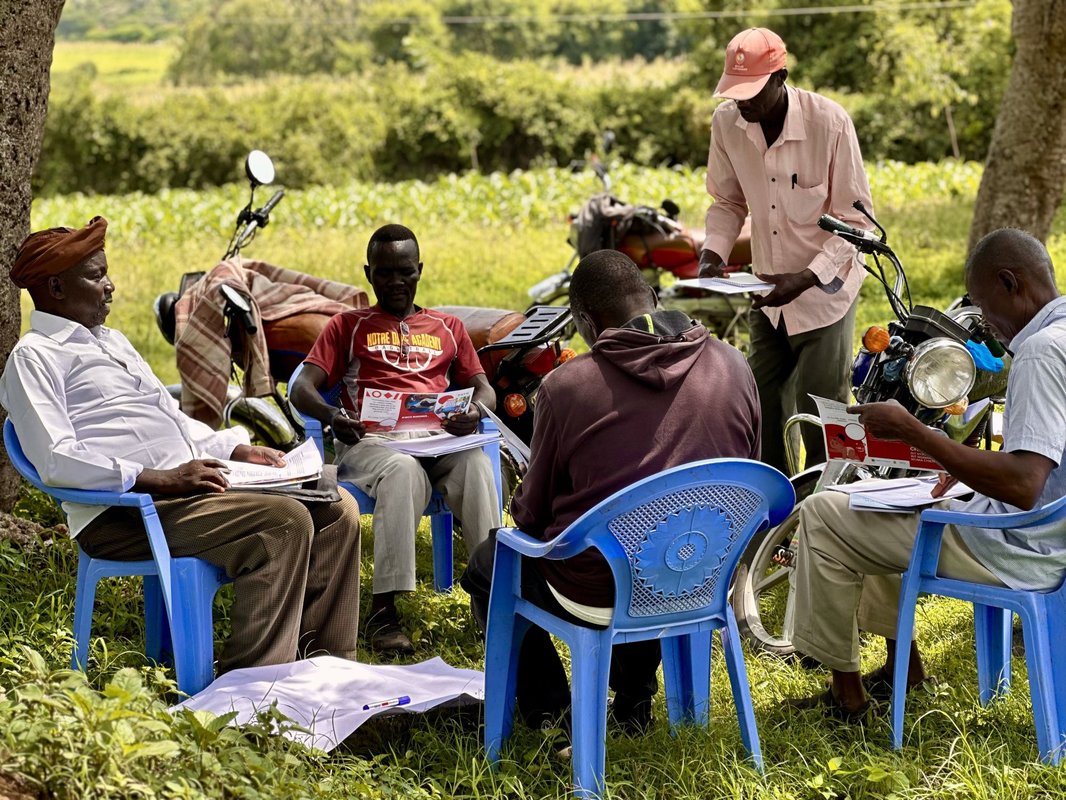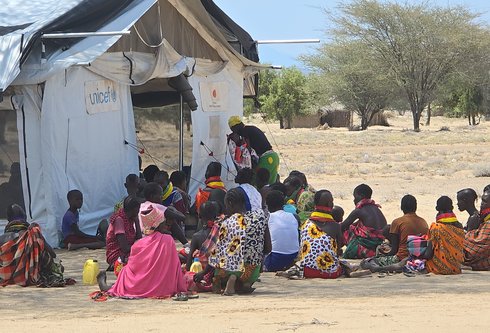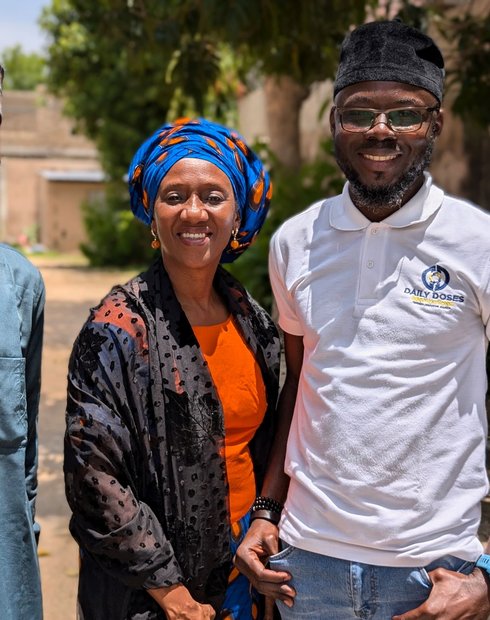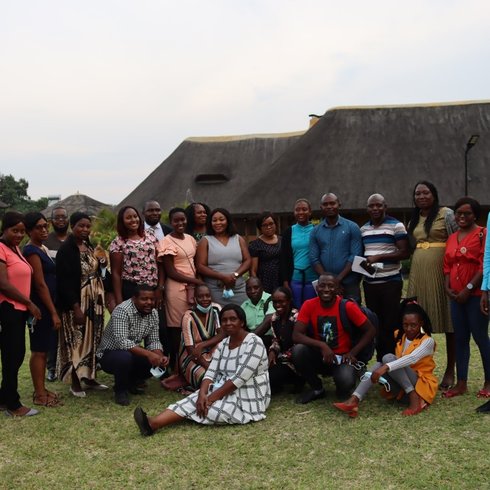In Rachuonyo North Subcounty, Kenya, health workers are finding new ways to bridge the gap between facilities and communities. At the center of this effort is Mr. Jacob Aduda, the community focal person who has been working with PATH Living Labs and the Subcounty Health Management Team to tackle one of the most urgent challenges—reaching zero-dose children who have never received a single vaccine.
Q: What health issue were you addressing with PATH Living Labs' human-centered design (HCD) approach and what was your role?
Jacob: With PATH Living Labs, we focused on strengthening disease prevention, particularly by identifying and vaccinating zero-dose children and ensuring they are brought into the immunization program to achieve herd immunity.
My role is to ensure all community health indicators are implemented effectively at level one, where we have our community health units, Community Health Assistants (CHAs), and Community Health Promoters (CHPs). I work to make sure there is a holistic link between the facilities and the community so that every indicator is addressed to improve service delivery.
I was introduced to HCD through this collaboration, and to me it means involving everyone, including caregivers, health workers, and other stakeholders, to find the best approaches to solving health challenges together.
Q: How were the solutions in Rachuonyo North co-created?
Jacob: We began with a baseline to confirm whether the problem truly existed. Then we engaged both the community and key stakeholders, collecting the data needed to understand the challenge in depth.
Working with ministry staff and other partners, we designed solutions based on real, local insights. Some of the solutions included:
- Quality Household Assessments and Sensitization (QHAS): an intensive, practical capacity-building building program that equips CHPs to identify and support zero-dose children through high-quality home visit sensitization, effective use of Maternal-Child Health Booklets for education, and e-CHIS for documentation and targeted follow-up.
- Chanjo Talks Kazini (CTK): a group-based sensitization intervention targeting male caregivers of zero-dose children to address gender norms negatively affecting uptake of vaccination services and to increase social support for women who bear the greatest burden of getting their children vaccinated.
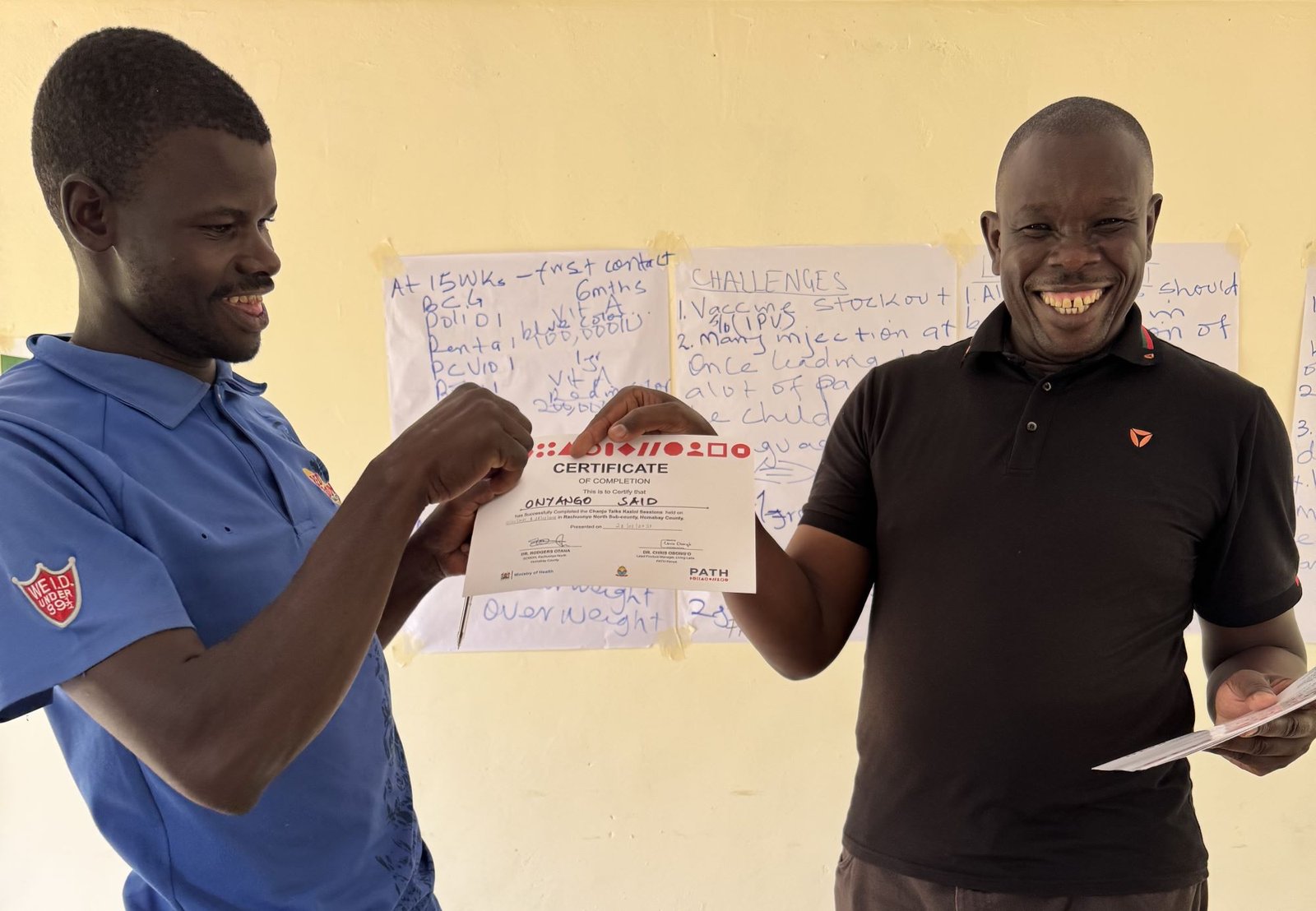
Mr. Jacob Aduda awards a male caregiver with a certificate of completion for the CTK intervention session. Photo: PATH/Mouline Ochieng.
Q: What did you learn from the HCD approach and why is client feedback so important?
Jacob: We had to make adjustments. For example, with the CTK approach targeting zero-dose children, we had a plan for reaching our target population, but we refined it based on feedback. The changes worked and caregivers began supporting each other, bringing spouses to clinics, and engaging in conversations with health workers.
Using HCD also revealed surprising insights. We used to assume there were no zero-dose or under-immunized children based on our records, but HCD showed us there were gaps and many families were not accessing services for different reasons. That has been eye-opening and I would like us to continue with this approach to reach more people.
I would tell any other community focal person that HCD is the way to go because integrating it into community health services ensures every missed opportunity for care is identified and addressed. Gathering feedback directly from clients is especially important because they understand their challenges better than anyone. Sometimes they suffer in silence, not knowing they can speak out. Engaging them directly helps them take ownership of their health and improves their health-seeking behavior.
Q: What would you like to see this project do in the future?
Jacob: I’d like to see the county government adopt HCD as a standard approach. It would help us address root causes of health issues right at the community level, where the real challenges exist.
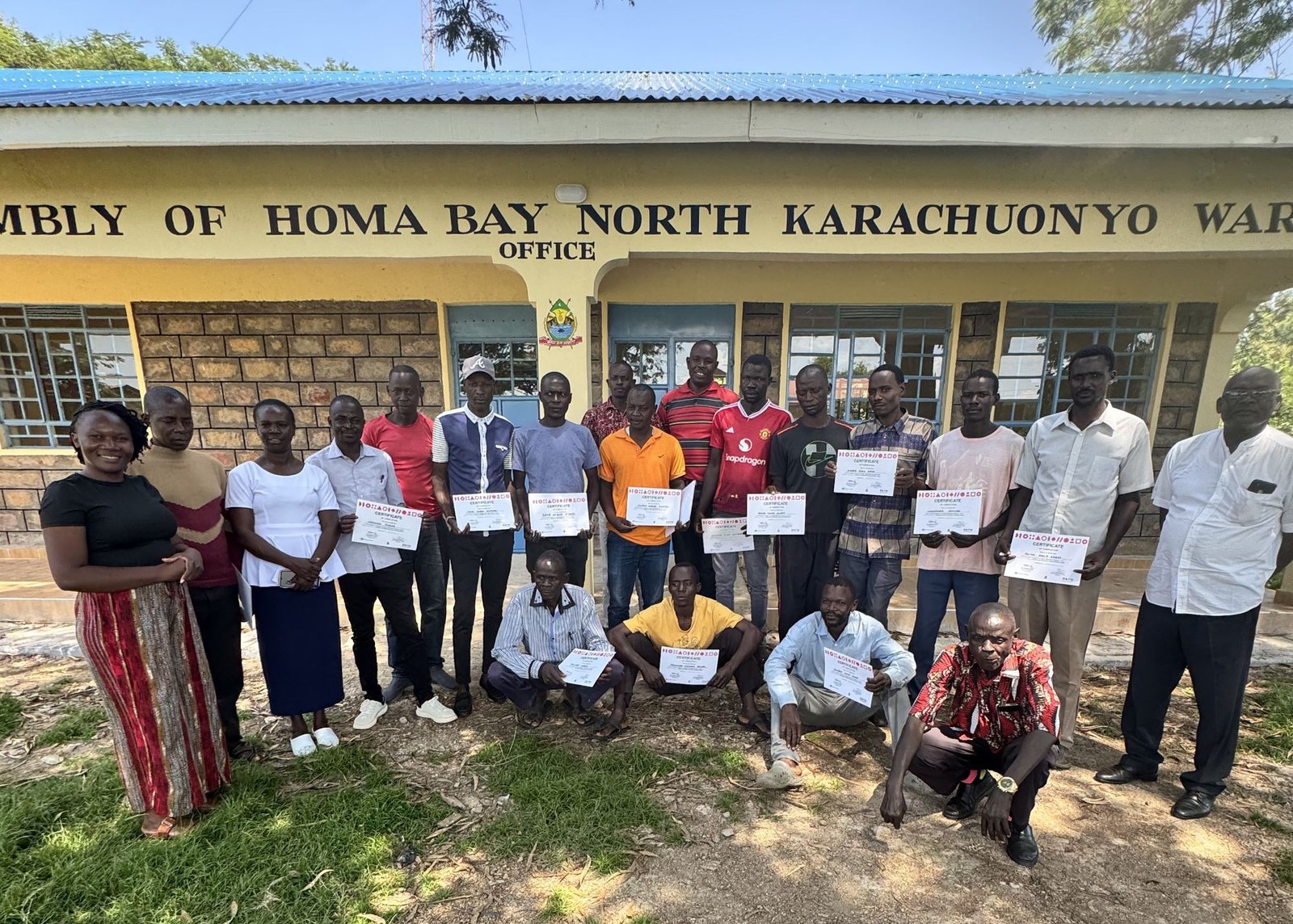
Living Labs and partners award male caregivers with certificates for completing the CTK session intervention. Photo: PATH/Mouline Ochieng.
Bridging gaps with health leaders like Jacob
Reaching zero-dose children is not simply about vaccines; it's about trust, relationships, and understanding the realities of life in each community. Health leaders like Jacob serve as vital bridges between health systems and the families they serve. They bring the data to life, uncover hidden barriers, and co-create solutions that are culturally relevant and practical.
By listening to caregivers, adapting strategies on the ground, and championing approaches like HCD, Jacob and others like him ensure that no child is invisible in the health system. Their leadership transforms policy into action, turning the vision of universal immunization into a tangible reality—one household, one conversation, and one child at a time
